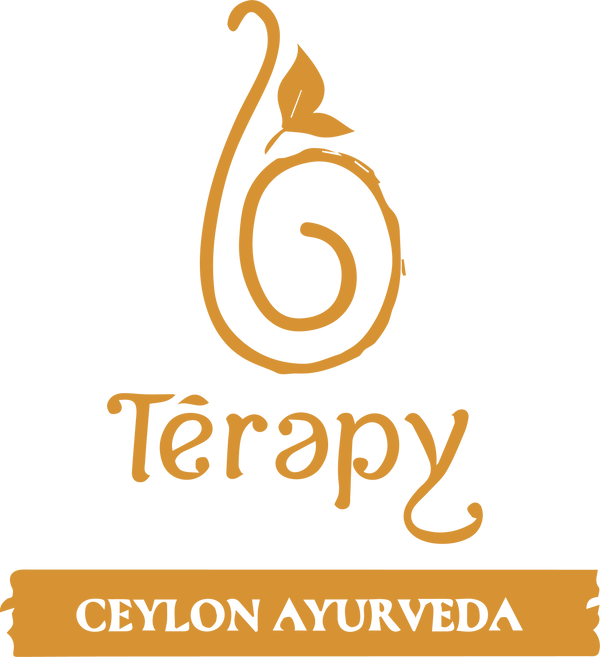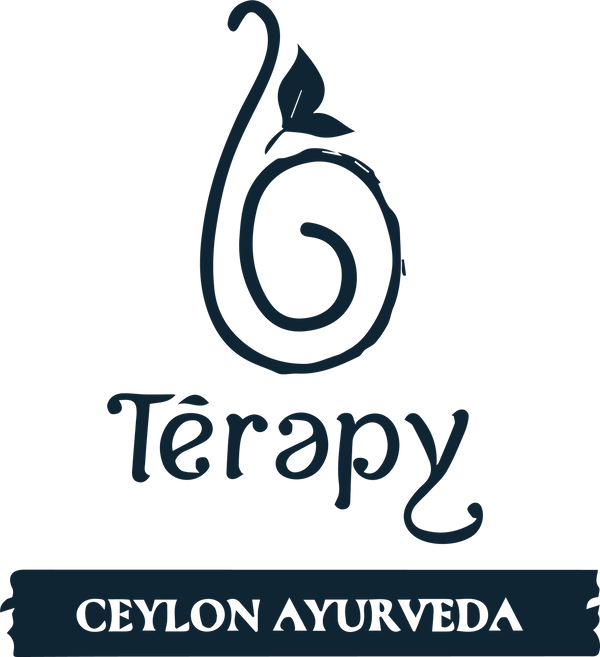Hibiscus Flower
Hibiscus is a vibrant flowering plant commonly known for its bright, beautiful petals and numerous medicinal benefits. Used extensively in Ayurvedic medicine, hibiscus is considered a powerful herb with a variety of therapeutic applications, ranging from skin health to cardiovascular well-being. In Ayurveda, it is valued for its ability to balance the body’s doshas, particularly the Pitta dosha, and it is often used to cool and rejuvenate the body.
What is Hibiscus?

Hibiscus, a genus of flowering plants in the family Malvaceae, consists of more than 200 species. Commonly known for its striking flowers in red, pink, yellow, and white hues, hibiscus is native to tropical and subtropical regions. The species Hibiscus rosa-sinensis, also known as Chinese hibiscus, is particularly popular for its use in both culinary and medicinal applications.
The active components of hibiscus, such as anthocyanins, flavonoids, and organic acids, contribute to its therapeutic effects. In Ayurveda, hibiscus is used as a tonic for the skin, heart, and digestive system and is believed to promote overall vitality.
The Ayurvedic Use of Hibiscus
In Ayurvedic medicine, hibiscus is considered a cooling herb, ideal for balancing the Pitta dosha, which is associated with heat, metabolism, and transformation in the body. Hibiscus is believed to help reduce inflammation, calm the digestive system, and support healthy skin. Some of its primary uses in Ayurveda include:
- Skin Health: Hibiscus is revered for its rejuvenating and anti-aging properties. It is used topically to promote clear, youthful skin. The plant contains natural acids, such as malic acid and citric acid, which help exfoliate the skin, remove dead cells, and promote a healthy glow. Hibiscus is also used in hair care to prevent dandruff and support hair growth.
- Heart Health: Hibiscus is often recommended in Ayurveda to support cardiovascular health. It is believed to help lower blood pressure and cholesterol levels, thus promoting heart health. Several studies suggest that hibiscus may have a mild hypotensive effect, making it a valuable herb in Ayurvedic formulations for managing hypertension.
- Digestive Health: Hibiscus is thought to aid in digestion by stimulating bile production and promoting regular bowel movements. It is used in Ayurvedic medicine to relieve constipation and support liver function. Hibiscus is also used as a mild diuretic to help with detoxification.
- Anti-inflammatory and Antioxidant Benefits: Hibiscus is rich in antioxidants, including flavonoids and polyphenols, which help neutralize free radicals in the body. These compounds support immune function and help prevent chronic diseases associated with oxidative stress, such as arthritis and cancer.
Health Benefits of Hibiscus
Research supports many of the traditional uses of hibiscus in Ayurvedic medicine, particularly in relation to its antioxidant, anti-inflammatory, and heart-healthy properties. Some of the primary health benefits of hibiscus include:
- Blood Pressure Regulation: Numerous studies have shown that hibiscus can help reduce blood pressure, particularly in individuals with mild to moderate hypertension. The antioxidants and anthocyanins in hibiscus are believed to help relax blood vessels and improve circulation. (Bhat et al., 2009)[1]
- Cholesterol Reduction: Hibiscus may help lower cholesterol levels, particularly LDL (bad cholesterol), while boosting HDL (good cholesterol). This can contribute to better heart health and reduced risk of cardiovascular disease. (Druce et al., 2013)[2]
- Anti-aging and Skin Health: Hibiscus is rich in vitamin C, which helps promote collagen production and fight signs of aging. The plant’s high antioxidant content also supports skin health by protecting against environmental damage. (Muthukumar et al., 2013)[3]
- Anti-inflammatory Effects: Hibiscus has been shown to reduce inflammation, which may benefit conditions like arthritis, asthma, and gastrointestinal disorders. The plant’s flavonoids and organic acids contribute to its anti-inflammatory action. (Rao et al., 2007)[4]
Practical Uses of Hibiscus in Ayurveda

Hibiscus is used in a variety of ways in Ayurvedic practices, from herbal teas to topical applications. Some of the most popular uses include:
- Hibiscus Tea: One of the most common ways to enjoy hibiscus is in the form of tea. The dried flowers are steeped in hot water to create a tangy, flavorful beverage that is said to aid in digestion, lower blood pressure, and promote relaxation.
- Hibiscus Oil: Hibiscus oil is used for hair and skin care. It is known to hydrate the skin, reduce scalp dryness, and prevent dandruff. It is also used as an ingredient in Ayurvedic hair masks to promote hair growth and prevent hair loss.
- Hibiscus Powder: The powdered form of hibiscus can be used as an ingredient in Ayurvedic face packs, hair treatments, and digestive tonics. It is often combined with other herbs like turmeric and sandalwood to enhance its therapeutic effects.
- Hibiscus in Ayurvedic Formulas: Hibiscus is often included in traditional Ayurvedic formulations designed to balance the body’s doshas, particularly those for detoxification, skin health, and heart health. It can be found in herbal powders and tinctures.
Conclusion: The Healing Power of Hibiscus in Ayurveda
Hibiscus is a versatile herb with a wide range of therapeutic applications in Ayurvedic medicine. Whether used for its heart-healthy benefits, skin rejuvenating properties, or its role in digestion and detoxification, hibiscus plays a vital role in supporting overall health and well-being. As a cooling herb, it is particularly beneficial for individuals with an excess of Pitta, helping to restore balance in the body. Whether consumed as tea, applied topically as oil, or incorporated into Ayurvedic formulations, hibiscus remains a valuable ingredient in natural healing traditions.
References:
- [1] Bhat, S. V., et al. (2009). "Effect of Hibiscus rosa-sinensis Linn. on blood pressure in humans." International Journal of Pharmacology, 5(6), 409-413.
- [2] Druce, M. R., et al. (2013). "Hibiscus sabdariffa extract and its effects on cholesterol and lipoproteins: A systematic review and meta-analysis." Phytomedicine, 20(10), 804-808.
- [3] Muthukumar, B., et al. (2013). "Hibiscus rosa-sinensis extract inhibits UVB-induced photoaging in human skin fibroblasts." International Journal of Cosmetic Science, 35(3), 264-272.
- [4] Rao, G. N., et al. (2007). "Anti-inflammatory effects of Hibiscus rosa-sinensis." Indian Journal of Pharmacology, 39(4), 245-249.
Featured collection
-
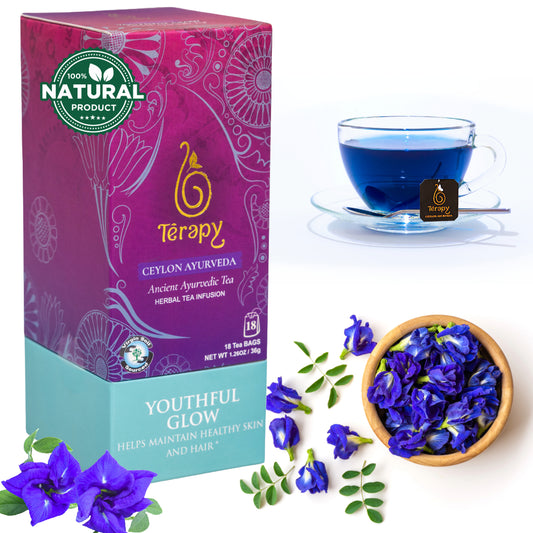
Youthful Glow Tea
SaleYouthful Glow Tea
Regular price From $17.99Regular priceUnit price / per$19.99Sale price From $17.99Sale -
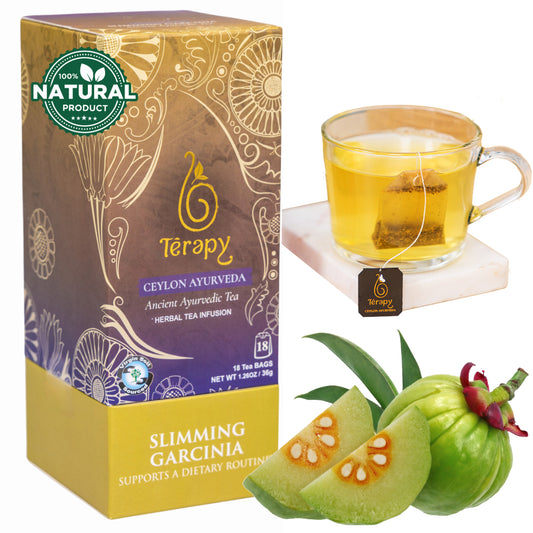
Slimming Garcinia Tea
SaleSlimming Garcinia Tea
Regular price From $17.99Regular priceUnit price / per$19.99Sale price From $17.99Sale -
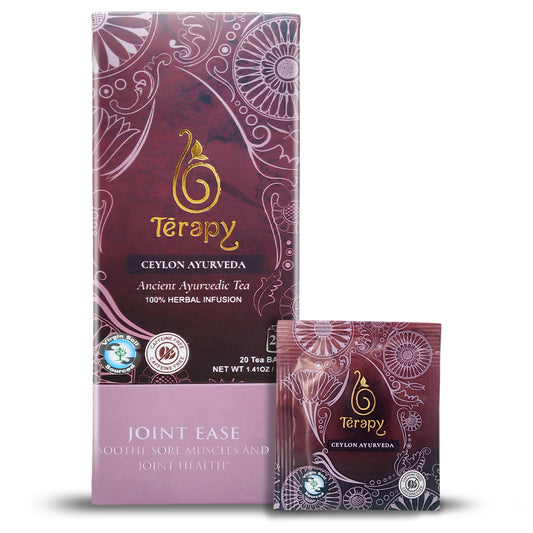
Joint Ease Tea
SaleJoint Ease Tea
Regular price From $14.99Regular priceUnit price / per$17.99Sale price From $14.99Sale -
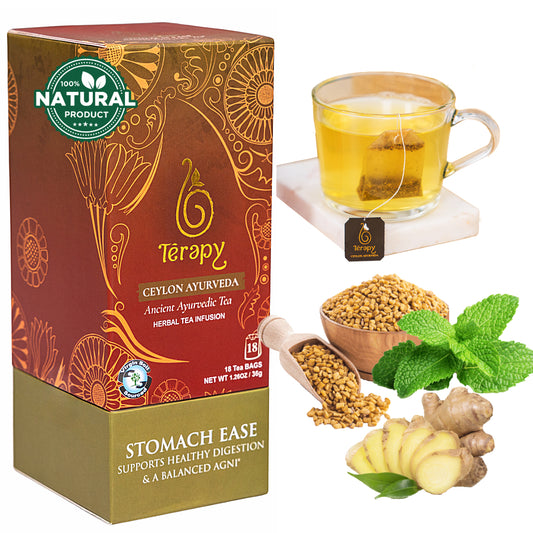
Stomach Ease Tea
SaleStomach Ease Tea
Regular price From $15.99Regular priceUnit price / per$17.99Sale price From $15.99Sale
